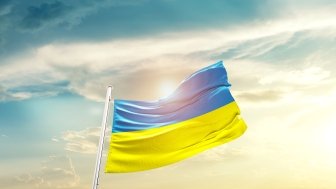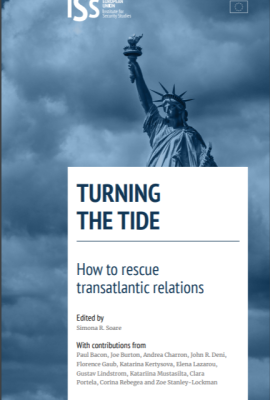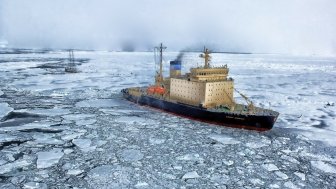Professional Affiliation
Policy Fellow, European Leadership Network (ELN)
Expert Bio
Katarina Kertysova is a Policy Fellow at the European Leadership Network (ELN) in London. She holds a degree in International Relations and French from the University of St Andrews, after which she pursued security studies at Sciences Po Paris and the Moscow State Institute of International Relations (MGIMO). Her research experience includes work conducted for the UNDP, the Carnegie Moscow Centre, the GLOBSEC Policy Institute, the Clingendael Institute, and The Hague Centre for Strategic Studies. Katarina’s research interests include Russia-West relations, security challenges in the shared neighbourhood, conflict prevention in the context of hybrid and asymmetric threats, electoral interference and information operations. Geographically, Katarina specialises in Eastern Europe, the post-Soviet space, the Western Balkans and the Arctic. Her work has been published in outlets such as EUobserver, Euractiv, and the World Politics Review. As a member of the Core Group of Experts of the OSCE Perspectives 20-30 initiative, Katarina also contributes to research focusing on new technologies and the risks they pose to human rights and political processes across the OSCE area.
Wilson Center Project
Russia’s militarization of the Arctic: What role can the EU, NATO, and the OSCE play in addressing the growing security dilemma in the Far North?
Project Summary
In recent years, Russia has bolstered its Arctic military presence, what triggered action-reaction dynamics in the military field, manifested by the steady reintroduction of army, navy and air force elements into the region by other Arctic players. The proposed project seeks to shed light on interstate security relations between Russia and other Arctic coastal states as well as to provide a concise analysis of how three international intergovernmental organizations in Europe with a security mandate – the EU, NATO and the OSCE – are responding to Russia’s militarization of the Arctic. The project will seek to answer the following questions: How to avoid a scenario whereby Russia’s military build-up, compounded by action-reaction dynamics in the military field, result in the Arctic becoming an arena of military competition, arms race, and a conflict spiral, potentially escalating into real conflict (especially given the growing ‘internationalisation’ of Arctic interests)? Can existing institutions help to dampen what is turning into a serious security dilemma between Russia and the West over Arctic policies?
Previous Terms
George F. Kennan Fellow, December 2, 2019 - March 6, 2020









